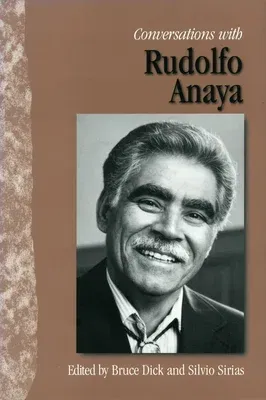In 1972 Rudolfo Anaya (1937-2020) made a quiet entry into American
literature with the publication of Bless Me, Ultima. Over the span of
twenty-two years, by word of mouth alone, this first novel sold more
than 300,000 copies. It was the first Chicano novel to enter the
American literary canon, and it helped identify Abaya as one of the
founders of Chicano literature.
In this collection of interviews Anaya talked about his life and about
how New Mexico, his home state, influenced his work. The interviews also
explore the importance that myths and spiritual matters played in his
writings. He shared his intimate knowledge of the long struggle of
ethnic writers to gain acceptance by mainstream publishers. Anaya also
spoke eloquently and passionately of his faith in Chicano literature and
of the politics of "hate, prejudice, and bigotry" that minorities face
throughout the United States. Yet he remained consistent in his call for
all Americans to understand one another. For many decades he was a
tireless agent in the push for multiculturalism and pluralism in
America.
Anaya was professor emeritus of English and creative writing at the
University of New Mexico. Besides his critically acclaimed novels
(Bless Me, Ultima; Heart of Aztlan; Tortuge; Albuquerque; Zia
Summer; Rio Grande Fall; and Jalamanata), he wrote plays, poems,
essays, short stories, and books for children.


